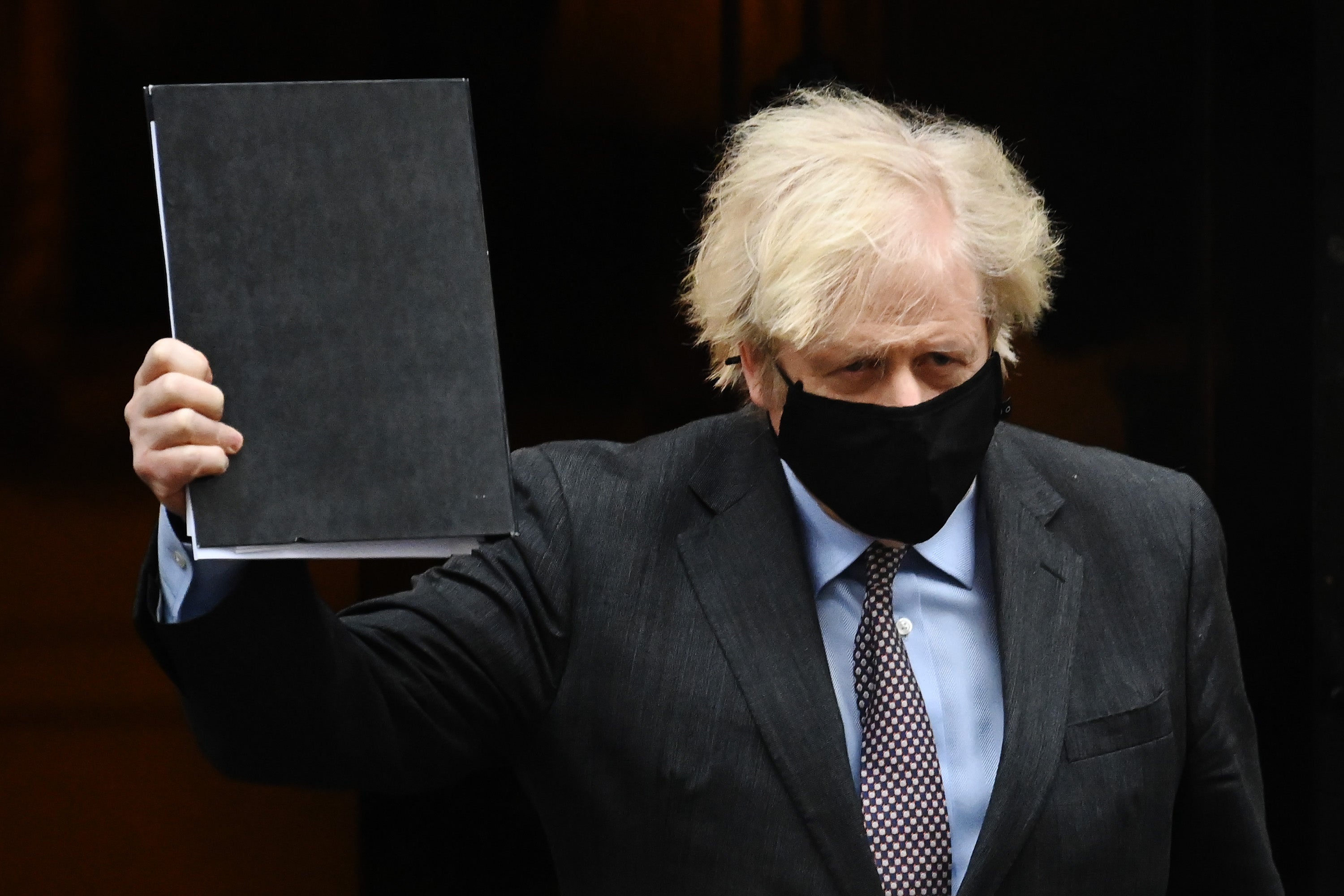The threat of a third coronavirus wave has forced Boris Johnson to learn from his mistakes
Analysis: Despite success with vaccines, another increase in Covid UK infections could yet prove inevitable, writes Health Correspondent Shaun Lintern


Your support helps us to tell the story
From reproductive rights to climate change to Big Tech, The Independent is on the ground when the story is developing. Whether it's investigating the financials of Elon Musk's pro-Trump PAC or producing our latest documentary, 'The A Word', which shines a light on the American women fighting for reproductive rights, we know how important it is to parse out the facts from the messaging.
At such a critical moment in US history, we need reporters on the ground. Your donation allows us to keep sending journalists to speak to both sides of the story.
The Independent is trusted by Americans across the entire political spectrum. And unlike many other quality news outlets, we choose not to lock Americans out of our reporting and analysis with paywalls. We believe quality journalism should be available to everyone, paid for by those who can afford it.
Your support makes all the difference.Slow and steady wins the race – a familiar proverb that is now effectively the UK government’s strategy for defeating coronavirus and relaxing lockdown.
Prime minister Boris Johnson may have finally learned his lesson after the headlong rush into reopening shops and restaurants last year which set the foundations for a calamitous second wave that left the UK with one of the worst Covid-19 death rates in the world.
The new roadmap unveiled on Monday is a document that silently acknowledges these past mistakes and proposes a more cautious approach.
The government has listened to the scientific advisers, who wanted five weeks between each major step in order to evaluate the effect on viral transmission before going ahead with the next set of relaxations.
In reality, Johnson had little choice but to take this slower approach. The brutal reality of the Sars-CoV-2 virus is that it will take advantage of any gap in infection control measures, and as we saw in January, when the number of patients in hospitals was double that seen in 2020, the effect can be catastrophic.
This harsh reality is not altered by the vaccination programme. While the advent of the vaccines has been heralded as a silver bullet against the virus and an end to all our problems, the latest internal documents from the government’s Sage committee show why Johnson opted for the prudent approach.
A report to Sage last week warned that even under the “most optimistic set of assumptions”, a third wave of Covid-19 infections was likely with at least a further 30,000 Covid deaths in the following months.
The modelling is not a prediction; there is huge uncertainty in these numbers. But at their heart is a simple reasoning. There are many people who are not protected from the virus either because they have not yet been vaccinated, or because the vaccination itself is not 100 per cent perfect and so some people who have been vaccinated will still get ill.
The paper warns that the level of herd immunity needed to protect against Covid is likely to be high. Only 79 per cent of the population are adults, and if the vaccine covered 79 per cent of them, that would mean only 62 per cent of the population being inoculated.
It adds: “As the vaccines do not completely prevent transmission, the reduction in transmission that results would be expected to be lower than 62 per cent. As a result, herd immunity is not likely to be reached in these scenarios without a further resurgence of transmission.”
The NHS is doing a fantastic job inoculating hundreds of thousands of people a day. New studies, also released on Monday, show that the vaccines do work and are cutting infections, hospitalisations and deaths. But none of them show 100 per cent effectiveness in the real world – this is the gap the virus could exploit with a sudden, reckless re-opening.
As data last week showed, hundreds of thousands of people are thought to be living with longer term consequences of Covid-19. The debate up to now has been largely about deaths and hospital beds filling up, but as we near a new equation with the virus, which as Sir Patrick Vallance has warned will be endemic to these shores for years to come, consideration must turn to its consequences in terms of morbidity.
The next resurgence of the virus may wash over thousands of younger, more economically active citizens and leave them debilitated and struggling well into the future.
This threat of future resurgences, even with a successful vaccine rollout, has yet to really enter the national conversation on Covid-19 in respect of the way forward. Boris Johnson has opted to take the medicine offered by scientists without fully explaining why to the public.
Within minutes of the prime minister sitting down in the House of Commons there were calls for him to go further. The Covid Recovery Group of MPs wants all rules relaxed by the end of April. Their simplistic logic has thankfully fallen on deaf ears at No 10, but it will get harder and harder to resist until the government levels with the public about what living with Covid-19 might really mean.
A third wave, smaller than that seen in January and with thankfully fewer deaths, may yet be inevitable. It may come in the summer, or autumn, or surge in winter like the seasonal flu.
There is also a very real possibility of the emergence of a future vaccine-resistant variant that could upend the entire calculation and force the country, and the whole world, on to the back foot once again.
The NHS needs to be prepared for these possibilities – and so does the public.



Join our commenting forum
Join thought-provoking conversations, follow other Independent readers and see their replies
Comments